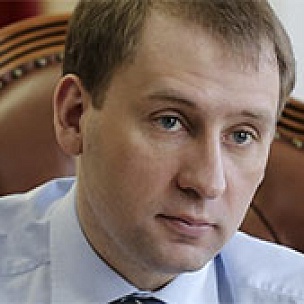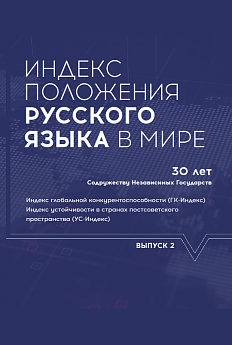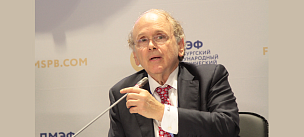Summary session «Personnel for Investment Projects in the Arctic» within the framework of the Arctic Talent Acquisition Conference, which took place on November 15-16, 2021 in Arkhangelsk.
KEY FINDINGS
Staffing needs should be established at the preparation stage of the investment project so that specialists can be trained by the required deadline
«We work directly with resident vacancies that are needed here and now. But it is more promising to work with staffing needs and to build the market for educational services in such a way that in-demand specialists enter the labour market», said Hasan Hasanbalayev, Director of the Department of Labor Provision of the Far East and Arctic Development Corporation.
«We are guided by the fact that, during the construction period of a project, it is necessary to think about needs, in order to form the staffing requirement. Often our needs are formed on the basis of the current situation and not the long term. This prevents either the employment system or the vocational education system from adequately responding to the employer’s needs», said Sergey Selyunin, Deputy Head of the Committee for Labour and Employment of the Krasnoyarsk Region.
«We need to know the staffing needs. <...> In this way, we can give that graduate who is needed exactly for the near future», said Oksana Bugayenko, Acting Vice Rector for Digitalization and Director of the Digital Arctic Project at Lomonosov Northern (Arctic) Federal University.
Early vocational guidance and the popularisation of working professions can restore the training system for investment projects in the Arctic zone
«It is necessary to develop a system of vocational guidance. <...> To broaden schoolchildren’s interest in working professions we need joint programmes with enterprises, excursions to production facilities, we need information openness of business. And it is essential that potential employees can be found not only among the younger generation but also among adults», said Sergey Smirnov, Director of the Sozvezdie Association of Oil and Gas Suppliers.
«Popularisation of the working professions. It’s not just agitation, campaign materials, it’s championships among workers <...> labour productivity grows very much, <...> the second effect is that the prestige of the profession is very high, more interest among potential students», said Victor Ikonnikov, Deputy Chairman of the Government of the Arkhangelsk Region
Employers and educational institutions are willing to invest jointly in the training of the future workforce
«In general, the heads of our regional enterprises are already morally mature, ready to invest in training and recruiting staff. And we are not talking about large companies. These are medium-sized and small companies. <...> The region’s current system of secondary vocational education, established in Soviet times, is ready for modernization, taking into account the current requirements of our employers», said Sergey Smirnov, Director of the Sozvezdie Association of Oil and Gas Suppliers.
PROBLEMS
Low interest in working in the Arctic zone among young people and generally poorly qualified specialists exacerbate the problem of staff shortages
«Young people are reluctant to enter these professions. The average age of professionals is steadily rising. The problem is that there are too few qualified professionals, and graduates of technical schools and colleges do not want to work in their specialization now. As a result, ship repair and shipbuilding plants desperately need electric welders, ship hull workers, fitters, repairmen, and fitters. And construction companies are short of carpenters, concrete workers, bulldozer operators, roller operators, surveyors. And port workers are also faced with a lack of qualified specialists. There are no mechanical dockers, riggers, crane operators», said Sergey Smirnov, Director of the Sozvezdie Association of Oil and Gas Suppliers.
«Without getting a proper engineering education, without being a specialist in their subject area, we have nothing to digitize», said Mikhail Grigoriev, director of the Gecon consulting company, member of the Scientific Council under the Security Council of the Russian Federation, and member of the State Commission for Arctic Development’s working group on the Northern Sea Route.
The material and technical base of educational institutions often does not meet the high demands of employers interested in certain competencies of graduates
«This is a very serious step in training. Such centres were established in the Soviet Union. We all remember them well. They will make it possible to train specialists near operating production facilities. They will contribute to the retention of specialists, combining theoretical and practical parts in the educational programme in a harmonious way», said Sergey Smirnov, Director of the Sozvezdie Association of Oil and Gas Suppliers.
The health and adaptation of professionals working in the Arctic zone, including on a rotational basis, requires special attention
«People who do work on a rotational basis in the north, and then move elsewhere, especially to the southern latitudes, experience great health problems. This may become a problem in the future when a potential commuter refuses to work, realizing that they may seriously compromise their health», said Victor Ikonnikov, Deputy Chairman of the Government of the Arkhangelsk Region
SOLUTIONS
Reducing student learning time and the practice of «dual degrees» will make headway in addressing the shortage of human resources
«Secondary vocational education acts as a quicker shoulder. Moreover, we have a new initiative of the Ministry of Education: the project „Professionalism“, which reduces the training period of colleges. From 2022, it will be launched in the pilot mode in the regions in several areas of training. The training time will be reduced to two years, and all unnecessary things will be removed from the programme, with only practice», said Hasan Hasanbalayev, Director of the Department of Labor Provision of the Far East and Arctic Development Corporation.
New methods in the recruitment system will solve the problem of staff shortages
«In [the Krasnoyarsk Territory], a specialized staffing centre has been set up for staffing investment projects, a topic supported by the governor. Staff positions have been allocated, <...> these are special people who deal centrally with these issues», said Sergey Selyunin, Deputy Head of the Committee for Labour and Employment of the Krasnoyarsk Region.
«The Minister of Defence decided to carry out the President’s directive to develop the Arctic zone of the Russian Federation, and the ’Our Arctic’ organization has been formed. We are engaged in specific work to inform military personnel who serve under conscription in different regions of the Russian Federation. <...> If the audience is 100 people, then somewhere around 30–40 of them fill in questionnaires with the desire to go to work in the city of Norilsk», said Alexey Kozlov, director of Nasha Arktika.
«We are now building up our logic service, where all those services that are available in the region will be uploaded to the investors’ personal account on our corporation’s portal. Starting with the possibility of holding a job fair, ordering organizing recruitment, placing vacancies, and ending with the opportunity to apply to educational institutions», said Hasan Hasanbalayev, Director of the Department of Labor Provision of the Far East and Arctic Development Corporation.
In order to better adapt and work effectively in an Arctic environment, it is necessary to build a system of personnel health
«There was a series of studies by the Scientific Center of Clinical and Experimental Medicine in Novosibirsk, as well as other medico-geographical and medical centres and other centres of polar medicine in Soviet times, where the problem of shift workers’ adaptation was discussed in great detail. Conclusions were drawn that the intraregional south-north shift was better than other inter-regional shifts. <...> This work <...> may be useful in terms of algorithms for medical solutions to the problem of shift workers’ adaptation», said Alexander Pilyasov, Director General of the ANO Regional Consulting Institute and Director of the North and Arctic Economics Centre for the Study of Productive Forces.
For more analytical materials on the Arctic agenda, see the Roscongress Information and Analytical System roscongress.org/en/knowledge/arktika/materials/.
The material was prepared by the information partner of TASS.






